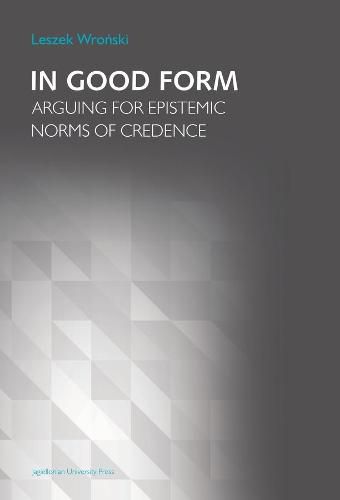Readings Newsletter
Become a Readings Member to make your shopping experience even easier.
Sign in or sign up for free!
You’re not far away from qualifying for FREE standard shipping within Australia
You’ve qualified for FREE standard shipping within Australia
The cart is loading…






The main topic of the book is how to argue for formal epistemic norms of credence. The author advocates formal justificational pluralism, suggesting that it is reasonable to use various formal tools, e.g. different scoring rules, in arguments for synchronic and diachronic norms. Leszek Wroński first examines various occasions on which modern formal epistemology fails to live up to its formal label. Among the topics considered next are: the Dutch Book Theorem and Arguments (which fails according to the author), a novel version of the Principal Principle, and a constructive approach to higher order probabilities. The author argues then that the best method for dealing with various belief update problems is that of minimizing inverse relative entropy, and defends the claim that for evaluating an agent’s credal state at a single moment the Brier Score seems to be the way to go.
$9.00 standard shipping within Australia
FREE standard shipping within Australia for orders over $100.00
Express & International shipping calculated at checkout
The main topic of the book is how to argue for formal epistemic norms of credence. The author advocates formal justificational pluralism, suggesting that it is reasonable to use various formal tools, e.g. different scoring rules, in arguments for synchronic and diachronic norms. Leszek Wroński first examines various occasions on which modern formal epistemology fails to live up to its formal label. Among the topics considered next are: the Dutch Book Theorem and Arguments (which fails according to the author), a novel version of the Principal Principle, and a constructive approach to higher order probabilities. The author argues then that the best method for dealing with various belief update problems is that of minimizing inverse relative entropy, and defends the claim that for evaluating an agent’s credal state at a single moment the Brier Score seems to be the way to go.